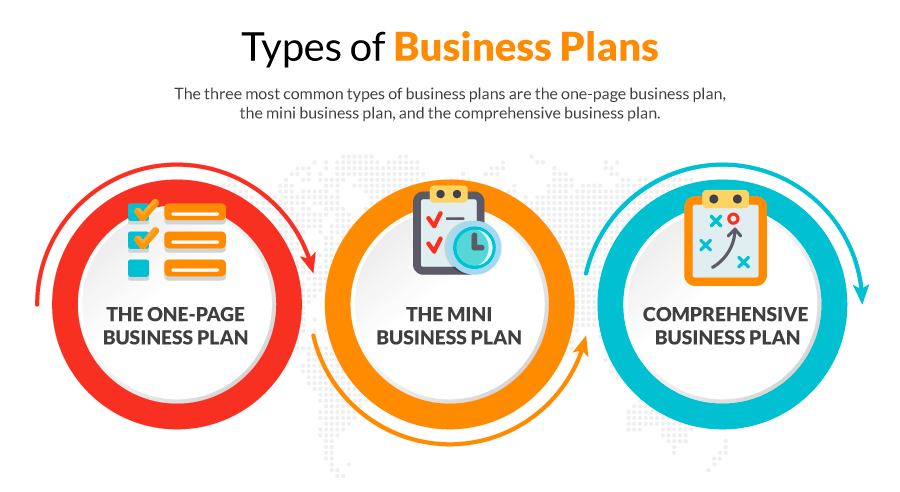Business planning can be confusing. Many entrepreneurs find themselves wondering, “How long should a business plan be?” Sadly, you will receive many different answers. The answer depends on who you ask.
On one hand, people will tell you that a business plan should be a single page. However, others will suggest writing a plan that is comprehensive and detailed.
Unfortunately, there is no perfect answer to this question. Ultimately, entrepreneurs should go to whatever length is necessary to satisfy the plan’s purpose. Different business plans can have different objectives, requiring varying lengths.
Every business plan is unique. Some explain the fine details of the business with deep supporting research. Others may use graphics to get their points across. A business plan writer’s approach to presenting the information can drastically affect its overall length.
In the grand scheme of things, does it truly matter how long a business plan is? Can a business plan length shift the startup’s results? Yes. However, the ideal length of your business plan depends on your specific business, audience, writing style, and plan type.
The One-Page Business Plan
Over the last several years, the one-page business plan has become increasingly popular as an introduction tool. This version summarizes the critical points of the business into a single page. In some ways, it is similar to a standard executive summary. This format makes it easy to digest the information, but isn’t acceptable for all situations.
The title of this version makes it clear – this type of business plan is a maximum of one page long. The ideal scenario for a one-page business plan is introducing an investor to an unfamiliar business. With only one page, it is quick to read and provides enough details to spark curiosity.
When writing a business plan in this format, you must remember that one page does not leave much room for extreme detail. If you choose this format, you must pick the most important elements. In other words, focus only on the details that are most likely to grab the reader’s interest.
However, a one-page business plan won’t satisfy an investor who knows your business and wants more details. While easy to read, these plans don’t provide enough context to relay the details of your overall strategy.
Is a one-page business plan right for you? Consider the following pros and cons.
Pros
- A one-page plan is simple and quick to construct.
- It provides just enough content for readers to digest easily.
- It allows entrepreneurs to explain the target market, customer problem, and solution.
Cons
- One-page business plans don’t provide enough context for readers to understand your business fully.
- If investors are interested after reading the one-pager, they will likely request a more comprehensive business plan.
- A one-page business plan lacks significant research and won’t prove a market need or product-market fit.
The Mini Business Plan
The mini business plan is usually ten to fifteen pages long. This plan includes the same sections as a comprehensive business plan. However, since this format has summarized sections, it can exclude important details and explanations.
Mini business plans cut to the chase, often using bullet points to fulfill the section header. However, they still comprise the primary sections, like products and services, research and development, and the funding request. Still, these plans don’t replace comprehensive and traditional business plans.
This format is perfect for situations where the reader wants to understand the startup’s nuances without massive effort. A mini business plan is an excellent next step if you have shared your one-page plan but the investor wants more details. This version will include more extensive information, including the problem, solution, marketing strategy, financial projections, and financial requirements.
Should your startup team choose the mini business plan? Consider the following pros and cons.
Pros
- The mini business plan is more inclusive than a one-page document but more accessible than a comprehensive one.
- It creates a better balance between the business plan length and the details it includes.
- Entrepreneurs can write a mini plan within several days.
Cons
- The mini business plan is brief and doesn’t explain the major points thoroughly.
- It typically excludes certain information such as operations strategy, exit strategy, etc.
- It provides a great introduction to the business but not enough market research to prove the startup’s potential.
If your team seeks investor capital, download our business plan template below.
The Comprehensive Business Plan
Comprehensive business plans are full-scale plans that are often 30 pages or more. These traditional business plans provide readers with a full view of the business. For example, they detail the market problem, solution, company mission, management team, objectives, marketing strategy, and more.
This format has been most popular among businesses since the beginning of time. When people mention the average length of a business plan, they are typically referring to this format.
Details and specifics are paramount to good business planning. This plan version starts with an executive summary and then uses supporting details to strengthen the argument. It tells the startup’s story, connects the strategy, and provides market research to validate the idea.
However, comprehensive business plans have their place. Few people will eagerly read a 35-page document without prior knowledge of your startup. These plans work best when provided on request. For example, after an investor reads your mini business plan, sending a longer version is a strong next step.
When raising seed funding, a comprehensive business plan provides investors with a full scope of the business.
Is writing a comprehensive business plan right for you? Consider the following pros and cons.
Pros
- The comprehensive business plan provides the most detail and data by using text, pie charts, and other visual aids.
- It examines every aspect of the business with a solid go-to-market strategy.
- It gives the most context and fully answers the reader’s questions.
Cons
- Readers may not read the entire plan and will flip directly to specific sections.
- Comprehensive plans require thorough research and preparation and may take weeks to write.
- These plans are highly detailed and must capture the reader’s attention early on.
What Type of Plan Do You Need?
Many entrepreneurs only complete one business plan, and they send that one business plan out for every situation. Unfortunately, this is not an effective method. Instead, entrepreneurs should have all three types of business plans in their arsenal and be able to supply the right business plan when needed.
The length of your plan isn’t the most critical element. Knowing what type of plan to use and when will give you the most significant advantage when seeking funding.
Whether you need a one-page plan, a mini-plan, or a full-scale comprehensive business plan, we can help. Our experts have written hundreds of winning business plans for startups worldwide. If you are currently seeking funding for your startup, we can help you, too. Contact us today, and let’s write your investor-ready business plan!










